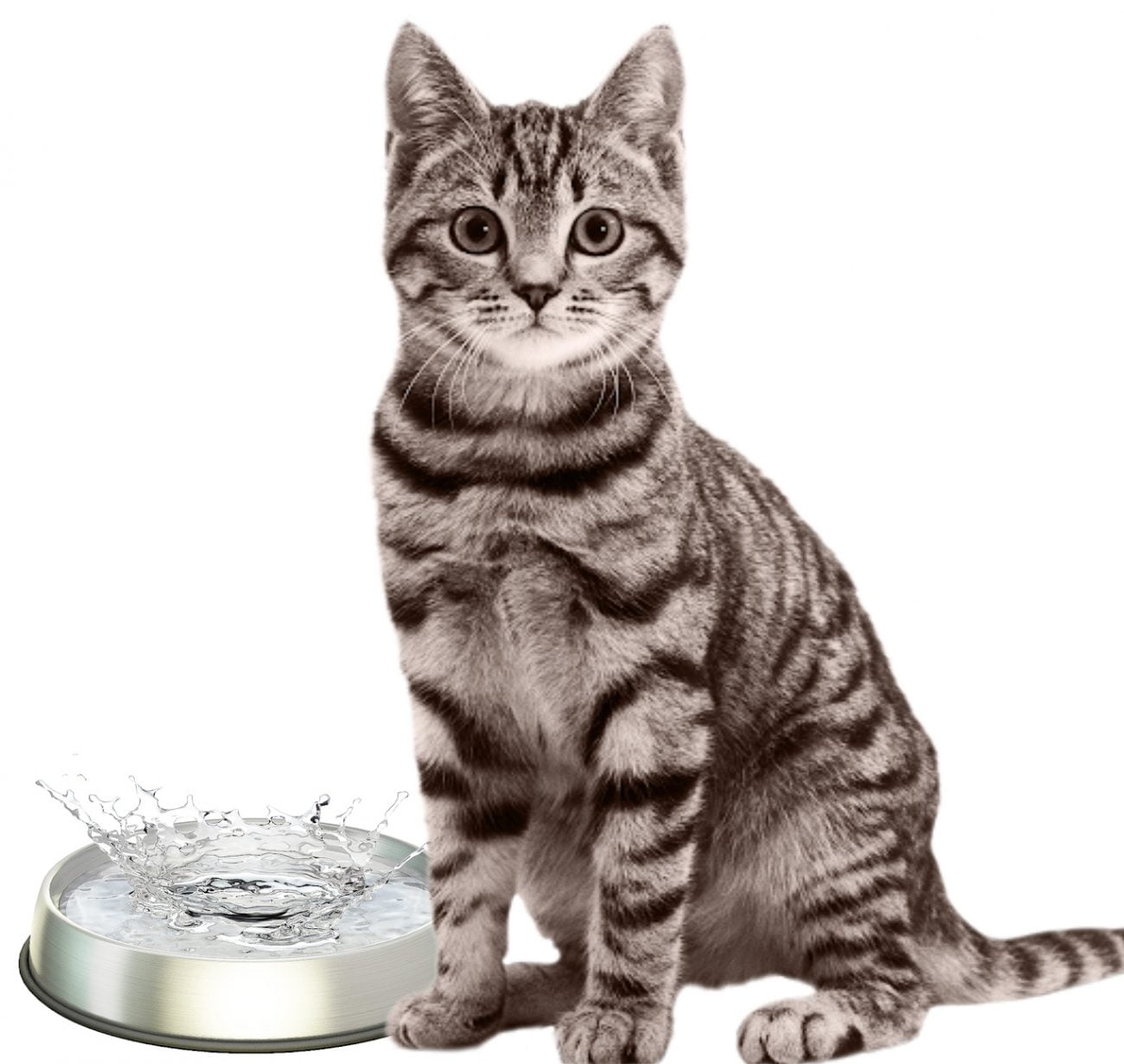The first preventative step is to consider diet. Some veterinarians believe that feline lower urinary tract disease (FLUTD) is caused or exacerbated by dry cat food. There are differences of opinion which is apparent because some veterinarians recommend Hill’s Prescription Diet c/d as a preventative for FLUTD. This is a dry cat food and therefore lacks moisture. It works by controlling sodium, magnesium and phosphorus levels for bladder health. However, some vets and dietitians would argue that the nature of dry cat food per se causes contributes to FLUTD.

There are cases of cats fed on dry cat food developing highly concentrated and alkaline urine. These cats develop urinary tract inflammation secondary to the concentrated high urine pH. Placing these cats on an all-wet, meat-based commercial cat food with no corn, potato, carrots or fruit ingredients reduced their urine pH from 8 to 6.5 together with a lower specific gravity. This cured the disease and prevented FLUTD recurring.
Perhaps the standard response by veterinarians to prevent FLUTD recurring is to prescribe C/D Hill’s but it would seem to me that the common-sense approach is to prescribe wet cat food of high quality. Or even commercially prepared raw cat food diet. This is now available in the UK (KatKin).
Many cats experience a recurrence of FLUTD when they return to their former food which was probably dry cat food. It is said that before the invention of dry cat food there was very little FLUTD in existence among the domestic cat population. Perhaps that is good evidence of the convenience of dry cat food and potential associated health problems. Even the specially prepared prescription foods with additives and modifications “can and do continue to promote this terrible condition” according to some veterinarians. I would play safe and move away from dry cat food if you want to take preventative action against FLUTD and don’t go back to the cat’s former dry diet.
As I understand it, most cat food manufacturers have reduced the levels of magnesium in their products and added L-methionine, a urinary acidifier to reduce the pH of urine because high pH i.e. alkaline, urine can lead to inflammation.
Natural treatments for feline lower urinary tract disease (LUTD)
Clean litter box
In addition to the above, a suggestion in order to prevent FLUTD recurring is to keep the litter box clean. It should be scooped at least twice a day and the litter cleaned up daily. This is because some cats refuse to use a dirty litter tray which results in retention of urine which can exacerbate urinary tract disease.
Water consumption
Another preventative measure would be to encourage water consumption. This means keeping clean fresh water available at all times and, as mentioned, feeding wet cat food which is high in water content relative to dry cat food. You can also provide treats of fish which can be boiled or microwaved and water added to increase water intake. We know that domestic cats are rather poor drinkers because of their wild cat inheritance. You can buy water fountains to encourage drinking. Although they have certain maintenance requirements which I think are a detriment.

Obesity
Another measure that can be taken is to prevent obesity. This means restricting food intake and encouraging your cat to exercise by playing with them or where possible allowing them outside under supervision or in a backyard with a cat confinement fence. I mention this because obesity is more likely to occur in full-time indoor cats. Cat owners of these cats will be reluctant to allow their cats to go outside for exercise. The alternative is supervised outdoor activities.
Stress
Minimising stress is also quite important because idiopathic feline urinary tract disease is exacerbated by stress. Stress can be caused in all kinds of ways such as being left alone all day because their owner is out working. This is going to cause stress (separation anxiety) in my view if the cat is a full-time indoor cat. I would be pretty sure in saying that a lot of cats developing FLUTD are full-time indoor cats that are left alone because of their owners’ work commitments.
Feline idiopathic cystitis (FIC) – watch for stress as the primary cause
Glucosamine
Glucosamine supplements may be beneficial in preventing a recurrence of FLUTD because it is believed that they protect the lining of the bladder.
If these preventative measures don’t really take effect, it would be wise to take your cat to a veterinarian for a proper evaluation to search for uroliths and any abnormalities in the urinary tract.

